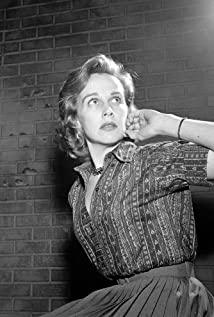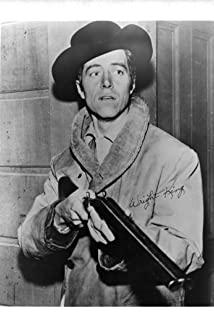The movie "A Streetcar Named Desire" is a feature film directed by the famous American director Ilya Kazan and starring Vivien Leigh and Marlon Brando. The film was born in 1951. Although it is still in the period of classic Hollywood, the avant-garde expression of ideas and audio-visual skills displayed by the film made it stand out among the films of the same period and be regarded as a classic. The film is based on a movie with dramatic changes. The scenes of "A Streetcar Named Desire" are relatively simple, and most of them are indoors. In such a 2-hour classic, the main responsibility for attracting the audience rests on the characters. Character characteristics and ingenious character relationships constitute the biggest attraction of this movie. Bai Lanzhi, played by Vivien Leigh, is the core character of the film. She is a sensitive and vulnerable character with a rich heart. Her psychological state is the focus of the film. The opposite and conflicting character is her brother-in-law Stanley, a character full of savagery and violence that seems out of tune with the civilized society of the time. Blanche in the story is a destitute aristocrat who chooses to seek refuge with his younger sister, who has long since left home after life in his hometown is hopeless. Her sudden arrival caused dissatisfaction with her brother-in-law Stanley, who needed absolute authority at home. Therefore, the arrival of Blanche has affected his inherent life model, and his control over the family has gradually become out of control, so he desperately wants Blanche to leave his life. But Blanche came here with a desire to live anew. She wanted to find a new way of life here, but she could not succeed. Carefully analyze the characters in the film, you can see that the characters in the film have a rich history, and the characters have a wealth of depth to dig. The essential. At the same time, the director's skill in using film means to express characters is also very mature, showing the characteristics of film character expression that the drama does not have. The three-dimensional characters of the film are the most worthy of taste, and the discussion of characters will be the main direction of this article. one. The relationship between memory and characters For the characters, desire and memory create their life orientation in the film. Blanche has a painful memory. Her ex-husband committed suicide because of her humiliation. Since then, her heart has been filled with guilt about this incident, which has become her heart knot, and this memory has also triggered In order to satisfy her later desires, she longed to leave her current state of mind, hoping that a new partner would take her away to gain a new life. In the same way, it was also because of these past events that her ideals were broken. These memories made her vulnerable and sensitive. She was often neurotic and incomprehensible because of these events. At the same time, she also became more vulnerable after experiencing them. Don't take the pain out of a depraved way of life. Later, when she finally got acquainted with Stanley's friend Mickey and the two fell in love with each other, Stanley told Mickey about her depraved past. She was disappointed again. She broke down in the dialogue with Mickey, and the pain in her memory All emerged and poured onto her. She has never been able to get out of the shadows of the past. She grew up in a noble family and has many romantic fantasies about life. The misalignment of these ideals and painful experiences has caused the tragedy of her life. At the beginning of the train, she kept bringing up the past events, and the audience's empathy with her continued to deepen. It can be said that she is not a character that traditionally attracts audiences to love, her occasional neuroticism, out-of-the-box behavior and self-deception all the time are all the shortcomings that are always on display. And only by knowing her past, combined with her current character status, will she be able to understand her, and be able to project her emotional focus on her, and have sympathy for her experience. The influence of the past on this character can also be seen in Stanley. The photo at home is an important prop. He represents Stanley's past. He used to be an honorable officer, received a medal, and had a relationship with Bran. On the contrary, he used to have good memories, but now he is a worker, living in a small dilapidated house, so he needs absolute control at home to feel his strength as a man, also because of his experience in the military , resulting in his reliance on violent means, and his behavior has become increasingly savage and rude. His admiration for masculine power made him viscerally reject women with refined lifestyles. At the same time, the impact of reality on him made him lose his expectations for life. When Blanche, who was full of more fantasies about life, appeared, he had to deny the inner desire of such a person who was full of unrealistic fantasies about life. Reasonable, began to beat her constantly, shattered all illusions with reality, and then forced her to accept the painful status quo. The behavior and memory scars of the characters in the film make everything more logical, the characters are richer, and the depth of characters and expressions can be extended from it. two. The method of depicting psychology in film language The director adopts mature film language when depicting psychology, which is one of the important reasons why this film is still recognized by the world in the presence of drama, and the unique advantages of the film have been demonstrated. Although it is a black and white film and lacks color assistance, the director's control of light and shadow is more prominent. The full coordination of light and shadow in the film and the state of the characters makes the audience feel more psychologically about the characters, especially when expressing some complex mentality. figure. The heroine Blanche spends most of the time in the film in a dim light. She has a mysterious temperament, and even the audience can't see her face very well. This kind of treatment makes the audience curious about her at first. Even more want to understand why she has so many contradictory points, so volatile. In the scene where Blanche and Stella first meet, light and shadow play an important role. When she met her sister, the lights left most of the shadows on her face, while her sister's face was bright. Combined with their conversation, Blanche's complex mentality was also revealed. At this time, she was desperate to seek refuge. Sister, so all her words express her love and concern for her sister, but when she talks about her family and hometown, her expression becomes complicated, and her words also seem to be accusing her sister, intentionally or unintentionally. The flickering under the light fits in with the content of the dialogue and adds to the complexity of the character. For Blanche, lighting is a very important way of portraying. She doesn't like too bright lights. When she arrives at her sister's house, she must also buy a lampshade to prevent her from being in an environment that is too bright. In addition to the disguise of the aging of their own appearance, there is also the concealment of the past and real situation in the character's heart. She hopes that the memory will always be hidden in the dark, and the past will not be mentioned again, and when the film reaches the climax scene where Mickey and Blanche meet for the last time, the director uses scheduling and lighting to show Blanche's words in Mickey's words completely collapsed. At the beginning of the scene, the room was extremely dark, and the two were hidden in the shadows. The lights outside the window flickered, bringing some light to the room, which was also like a warning. At this time, the rhythm was still relatively slow, and it seemed that the two were still serious Attributable to good room. And when Mickey turned on the lights in the room and Blanche was exposed to the lights, the rhythm became tense and Blanche's expression became flustered. And when Mickey took off the lampshade and completely exposed Blanche to the light, it was equivalent to giving Blanche a blow, which completely shattered her self-deception and fantasy. At this moment, her heart has gradually collapsed, and the light and shade of the lights have made a good match with her psychological changes, allowing people to intuitively feel her complex and distorted psychology.
3. Character Symbols The film needs to be combined with the times, and the personal destiny of the characters is inseparable from the society. The characters in this film are of great significance to the times. As a work produced during the Cold War, various social ideas gradually emerged at that time. , the film fits the thinking of this period, and constantly explores the problems of people and society. Blanche, who has experienced misery and longed for a better future, can be said to be a metaphor for the general psychological state of the American public at that time after the war. People yearn for the peace of life at this moment. But there are always savage and vulgar people like Stanley, who regard competition and confrontation as the main theme of their lives, and they force the world that is about to come out of its pains to return to tension again. Similarly, that mentality of thwarted expectations figured out. In the end, Stanley's rape of Blanche is an expression of the creator's pessimistic mentality. Although gentle people try their best to please the world, they cannot avoid the tragic fate of being destroyed by the barbaric existence. When Blanche finally took the doctor's hand and stepped into the car bound for the psychiatric hospital, she said "she never doubted the kindness of strangers", a line that feels even more heartbreaking, to the point , even if her sanity is a little unclear, she still has expectations, the people in the past have destroyed her, and the arrival of strangers still makes her look forward to it, imagining that he may have good intentions, this kind of ridiculous character mentality , profoundly exposed the social scars, giving people a great psychological impact. Good works often hit people's hearts directly, and people associate themselves with the social reality of self-existence in the works. At this time, the audience and the creator have exchanges. "A Streetcar Named Desire" presents the pain in front of everyone, causing people at that time. The thinking and introspection of the book, even now it is very powerful, I can still feel the profound problems it expresses, which may be the reason why it is enduring.
View more about A Streetcar Named Desire reviews











